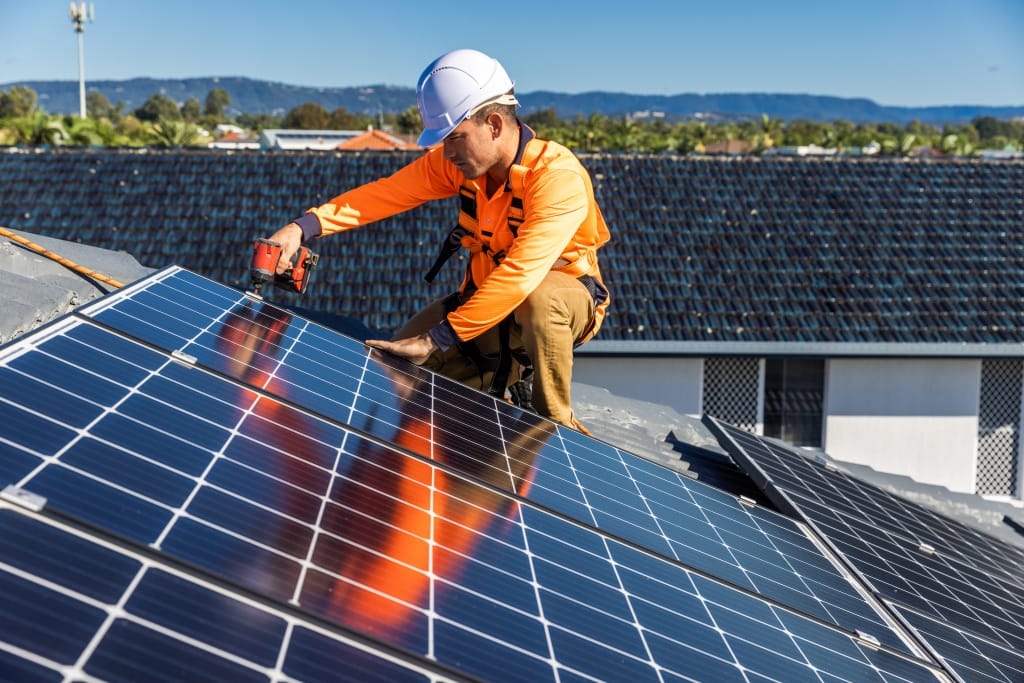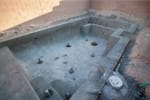Sacramento homeowners are increasingly turning to solar energy to reduce their electricity bills and environmental impact.
With over 260 sunny days per year, California's capital city offers ideal conditions for solar power generation.
However, choosing the right solar company can make the difference between a profitable investment and a costly mistake.
Before signing any contract or making a down payment, you need to ask the right questions.
Solar installations represent a significant financial commitment—typically ranging from $15,000 to $30,000 for residential systems.
The solar company you choose will influence everything from your system's performance to warranty coverage and long-term savings.
You will learn vital questions every Sacramento homeowner should ask solar companies during the evaluation process.
These questions will help you identify reputable installers, avoid common pitfalls, and ensure you get the best value for your solar investment.
1)) What Licenses And Certifications Do You Hold?
Solar installation requires specialized skills and proper licensing.
In California, solar companies must hold a C-46 Solar Contractor License issued by the Contractors State License Board (CSLB).
This license specifically covers solar photovoltaic systems and ensures the contractor has met state requirements for knowledge and experience.
Ask to see their license number and verify it's current through the CSLB website.
Look for certifications from the North American Board of Certified Energy Practitioners (NABCEP).
NABCEP certification demonstrates advanced training in solar installation and system design.
Reputable Sacramento solar companies should also carry proper insurance, including general liability and workers' compensation coverage.
Request proof of insurance and verify the policies are current before allowing any work to begin on your property.
2)) How Long Have You Been Installing Solar In Sacramento?
Experience matters significantly in solar installation. Companies with extensive local experience understand Sacramento's unique climate conditions, permitting requirements, and utility interconnection processes with Sacramento Municipal Utility District (SMUD).
Sacramento-specific experience is particularly valuable because SMUD has different net metering policies and interconnection procedures compared to other California utilities.
An experienced local installer will navigate these requirements efficiently, potentially saving you time and avoiding costly delays.
Ask about the company's track record in Sacramento, including how many local installations they've completed and whether they can provide references from recent customers in your area.
3)) What Solar Panel Brands And Equipment Do You Use?
The quality of solar equipment directly impacts your system's performance and longevity.
Top-tier solar panel manufacturers like SunPower, LG, Panasonic, and REC offer superior efficiency ratings and comprehensive warranties.
Ask about the specific panel models being proposed for your installation.
Higher-efficiency panels may cost more upfront but can generate more electricity in limited roof space, potentially providing better long-term value.
Inquire about the inverter technology as well. String inverters, power optimizers, and microinverters each have different advantages depending on your roof configuration and shading conditions.
A knowledgeable installer should explain why they're recommending specific equipment for your situation.
4)) Can You Provide A Detailed System Analysis And Quote?
A professional solar assessment should include a thorough analysis of your energy usage, roof conditions, and local sun exposure.
The company should review at least 12 months of your electricity bills to understand your consumption patterns and size the system appropriately.
The quote should break down equipment costs, installation fees, permit expenses, and any additional charges.
Beware of companies that provide estimates without conducting an on-site evaluation or reviewing your actual energy usage.
Ask for multiple scenarios if applicable, such as different system sizes or equipment options. This allows you to compare the costs and benefits of various approaches to meet your energy goals.
5)) What Financing Options Are Available?
Solar financing significantly affects the overall cost and cash flow of your investment.
Most Sacramento solar companies offer multiple financing options, including cash purchases, solar loans, and lease agreements.
Cash purchases typically provide the best long-term financial returns but require significant upfront investment.
Solar loans allow you to own the system while spreading payments over time.
Leases and power purchase agreements (PPAs) require little or no money down but provide smaller long-term savings.
Compare the total cost of ownership under different financing scenarios. Factor in federal tax credits, California's solar incentives, and SMUD's rebate programs when evaluating your options.
6)) What Warranties Do You Provide?
Solar installations should come with multiple warranty protections. Equipment warranties typically cover solar panels for 20-25 years and inverters for 10-25 years, depending on the manufacturer and model.
Equally important is the installer's workmanship warranty, which covers installation quality and should last at least 10 years.
This warranty protects you if installation defects cause roof leaks, electrical problems, or system failures.
Ask about the warranty claim process and whether the company will still be available to honor warranties in the future.
Large, established companies are more likely to provide reliable long-term warranty support.
7)) How Do You Handle Permits And Utility Interconnection?
Solar installations require building permits from Sacramento County or the City of Sacramento, depending on your location.
The installer should handle all permitting paperwork and ensure the installation meets local building codes.
Utility interconnection with SMUD involves additional paperwork and inspections.
Experienced installers understand SMUD's requirements and can expedite the interconnection process to get your system producing electricity quickly.
Ask about typical timelines for permits and utility approval. Delays in these processes can postpone your system activation and reduce your first-year solar production.
8)) What Is Your Installation Timeline And Process?
Understanding the installation timeline helps you plan accordingly and sets proper expectations.
Most residential solar installations take 1-3 days of actual work, but the entire process from contract signing to system activation typically takes 6-12 weeks.
Ask about the installation crew size and whether they're employees or subcontractors.
Company employees often provide more consistent quality and accountability compared to subcontracted crews.
Inquire about site protection measures to prevent damage to your landscaping, roof, or other property during installation.
Reputable companies should carry insurance to cover any accidental damage.
9)) How Will You Monitor System Performance?
Modern solar systems should include monitoring capabilities that track energy production and identify potential issues.
Many systems provide real-time monitoring through smartphone apps or web portals.
Ask whether monitoring is included in your installation and how you'll be notified if system performance drops below expected levels.
Some companies provide ongoing monitoring services and will contact you if problems are detected.
Understanding your system's expected performance helps you identify issues early and ensures you're getting the full benefit of your solar investment.
10)) What Happens If I Need Service Or Repairs?
Even quality solar installations may require occasional maintenance or repairs. Ask about the company's service department and response times for system issues.
Find out whether service calls are covered under warranty or if additional fees apply.
Some companies charge trip fees for service visits, while others include a certain number of service calls in their warranty coverage.
Ask about parts availability and whether the company stocks common replacement components.
Quick access to replacement parts minimizes system downtime if repairs are needed.
Conclusion
Choosing the right solar company requires careful evaluation of multiple factors beyond just price.
The questions outlined above will help you identify installers with the experience, credentials, and commitment to quality that ensure a successful solar installation.
Take time to interview multiple companies and compare their responses to these key questions.
Check references, verify licenses, and read online reviews before making your final decision.
Sacramento's abundant sunshine makes solar energy an excellent investment for most homeowners.
By asking the right questions upfront, you'll find a solar partner who can help you maximize your energy savings and contribute to California's clean energy future.
Are You Looking For The Best Solar Power Installers In Sacramento Ca? Click Here To Get In Touch With A Solar Expert Today!
Download Our Free E-book!








